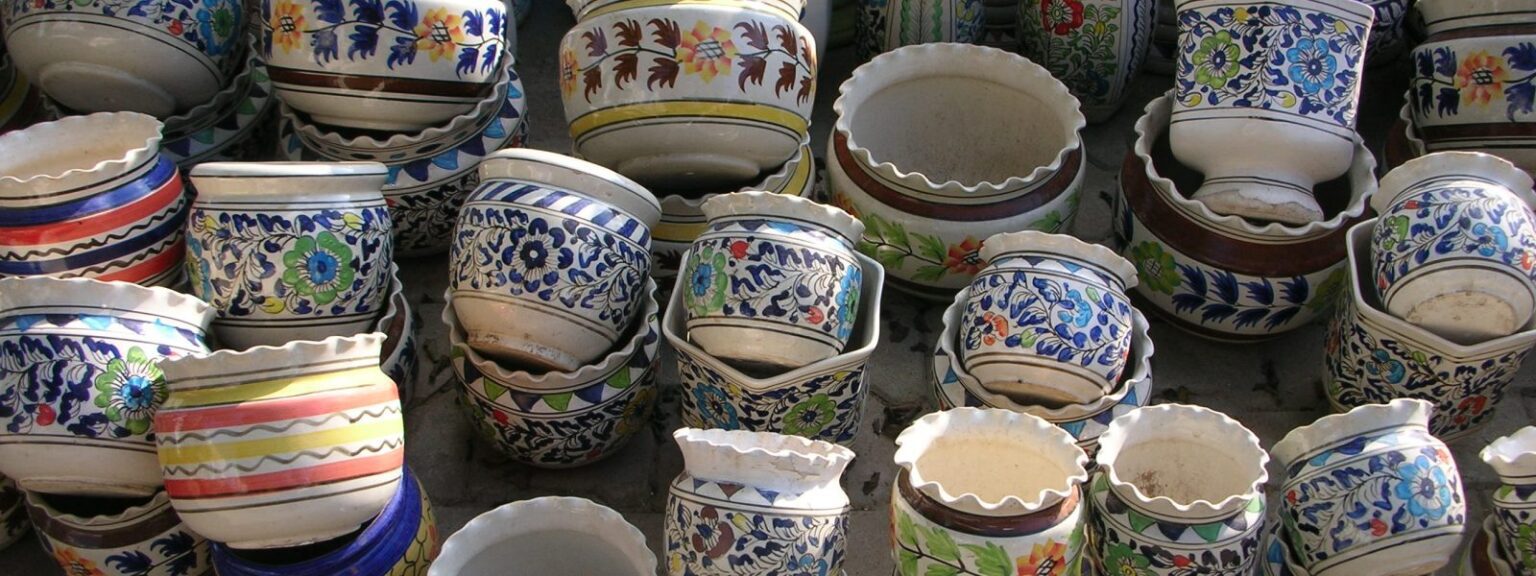Economic woes remain one of the foremost challenges facing the Muslim world. A decade has passed since the Arab Spring initiated unprecedented upheaval in the Middle East, largely stimulated by frustrations at socioeconomic realities. Whilst longstanding autocrats and elections have come and gone, such socioeconomic injustices ring even more true in the region ten years on, and echo the status-quo in other Muslim-majority countries.
From North Africa to Southeast Asia, widening, multidimensional inequality has seen an increase in relative poverty and the squeezing of the middle class, even in many formally prospering middle-income states. Rising unemployment, in many cases despite increasing levels of education, has led to a dearth of opportunities for the next generation. This has resulted in qualified individuals in sub-Saharan Africa and South Asia working informally for low wages, while lacking access to basic welfare services. Even before the onset of the coronavirus, numerous Muslim states were struggling to contain burgeoning economic crises amid high inflation and depreciating currencies. Such realities have only degenerated since the pandemic, and with limited access to vaccine supplies, in some countries the worst may be yet to come.
While these challenges are well known and addressed through various approaches in both the academic literature and the policy arena, this essay will make the case that an umma-centred examination is warranted. Some root problems with the current economic paradigm will be highlighted, and the potential offered by employing an ummatic analysis.
The Muslim world at a glance
Of the varied challenges facing the Muslim world, several clearly stem from the trade positioning of Muslim states in the face of globalisation. By virtue of being heavily reliant on commodities and agriculture, most Muslim countries have failed to generate significant productive capabilities that would allow them to export higher value products. While a stronger industrial base is present in Asia, Malaysia is the only Muslim country to have made progress in increasing the complexity of its product and service exports. Pakistan and Bangladesh are still relegated to low-value textile goods. It is unsurprising, then, that the combined gross domestic product of 50 Muslim countries amounts to just over $4 trillion; Germany alone produces goods and services worth $3.34 trillion (Jan and Asutay 2019). The heavy reliance on petroleum products in most Middle Eastern and North African states, as well as other Muslim kingdoms such as Brunei, also has notable political implications, with oil rents entrenching the power of authoritarian regimes.
Undergirding such trade flows is the economic architecture of the international system and the imposition of regulations that constrain Muslim nations’ ability to determine their own domestic policies. Much economic literature has discussed the implications of the World Trade Organisation strictly prohibiting the state from investing significantly in domestic industry or protecting producers through high tariffs. Bilateral and regional trade agreements often impose even heavier restrictions, which prevent states from assuming a developmental role and initiating structural upgrading, under the banner of facilitating free trade (Shadlen 2005). Instead, trade experts promote foreign investment with the hope that countries will eventually improve their position in global value chains. Yet this actually provides multinational corporations in richer states with the opportunity to exploit cheap labour, while retaining the bulk of the profit. Despite these contradictions, institutions such as the Organisation of Islamic Cooperation continue to encourage member states to lower barriers to trade and attract foreign companies to establish new value chains (OIC 2020).
Domestic policymaking in many Muslim countries has also been influenced by the rise of neoliberalism. The so-called Washington Consensus — which recommended drastic financial and trade liberalisation, austerity measures and privatisation — has framed much of what constitutes sensible economic strategy since the 1980s (Harvey 2005). International lending institutions, such as the International Monetary Fund and World Bank, have made loans conditional on implementing such policies. Yet both Egypt and Jordan, once touted as success stories, have failed to yield expected results, with growth failing to translate into sufficient jobs and increased incomes. Liberalisation has also accelerated conflict in Muslim countries; Sierra Leone and post-invasion Iraq stand as two cases where a reduction in state services, shrinking public bureaucracies, and the creation of oligopolies laid the foundations for future violence (Keen 2012, Klein 2007). However, with centres of knowledge production on economic policy still heavily concentrated in the West, Muslim states remain intellectually dependent and unable to articulate alternative strategies.
Muslim countries also remain vulnerable due to poor economic governance institutions. This is, in many cases, a remnant of colonialism after European settlers destroyed or replaced indigenous forms of organisation (Acemoglu, Johnson and Robinson 2002). Nigeria is but one example where Britain’s “effortless” colonialism created a fragmented state along tribal and ethnic lines (Kohli 2004). Such divisions persisted into the 20th century such that, despite attaining independence, Nigeria was ill-prepared to pursue political and economic development. Even in countries without such blatant historical obstacles, a weak institutional environment means corruption remains rife. This is true regardless of income level; Indonesia, the Muslim country with the highest GDP, is ranked second to last in the East Asia and Pacific region for corruption by the World Justice Project (Jan and Asutay 2019). These problems have been compounded by policies that target the private sector as a source of finance. Whilst this was intended to avoid the corruption associated with state financing, it instead has resulted in the emergence of crony capitalism. Across much of the Middle East, autocrats are supported by a cadre of businessmen who control key industries and insulate the regime from financial difficulty while perpetuating societal inequality.
Muslim-majority countries are rich in both natural and human resources. However, these challenges reflect how states have largely failed to make productive use of their wealth and translate it into prosperity for the umma as a whole. Unending economic woes have been shown to be a clear incubator for conflict, and, even in peacetime, reinforce Muslim states’ material and intellectual dependence on the West.
An Ummatic focus
The issues affecting the Muslim world mentioned thus far are largely dealt with in the policy space and academia through national and regional approaches. However, an umma-centred imagination offers significant potential in tackling the root causes of these developmental challenges. This ought not be attempt to homogenise Muslim societies and their varied problems. Rather, as posited by Professor Anjum in his 2019 paper Who Wants the Caliphate?, an ummatic approach recognises how Muslim societies are connected by asymptotic ideals of political unity and a divinely-inspired way of life. Moreover, this focus allows Muslims to expand their imaginations beyond the status quo and articulate solutions rooted in their religious commitment.
Indeed, an ummatic focus is not completely alien to current political and economic trends. The past two decades have witnessed a notable increase in South-South cooperation being presented as a strategy for developing states to mutually support one another in political, economic and technical domains. Applying this to the Global Muslim South has the potential to lessen Western domination and facilitate trade between countries with a smaller power imbalance. However, despite this potential and efforts at integration, Muslim intra-trade remains marginal relative to trade with the rest of world at below 20% (OIC 2020). Much of this is due to low trade complementarity, but a limited capacity to produce exportable surpluses, restrictive policies and a lack of political will also play role. Overcoming these difficulties through an ummatic approach is even more crucial given the exponential rise of China in the past two decades. With the vast majority of countries today sharing more trade with China than the US, pressure from Beijing is likely to prove just as challenging as Western hegemony. Thus, the only way to achieve a greater degree of Muslim independence and development is to look inward.
An umma-centred imagination also offers the opportunity for Muslims to conceive of opportunities for holistic reform. The array of economic challenges in the Muslim world are inherently political; thus, attempts to strengthen individual policies, targeted industries or specific economic actors are limited without serious political transformation. Questions relating to political reform, statehood, and sovereignty fundamentally involve Islam. Consequently, an ummatic approach offers the best way to integrate these varied elements. Rather than considering economic issues in isolation, an umma-focused approach would recognise the heritage of the Muslim world as intimately related to its state today, and contextualise questions surrounding its political and economic future.
Finally, an ummatic focus is necessary to invigorate the field of Islamic economics and envision alternatives to capitalist forms of production. The Islamic Moral Economy of the mid-20th century drew on Islamic principles to present Islam’s position on homo economicus, resource allocation and factors of production. Yet despite the profusion of literature, a lack of clarity has meant the field has had less material impact on policymakers than expected (Susanto 2020). This is partly due to the difficulty of reconciling Islamic economic principles with the current international system and confining it within the bounds of a nation state model.
However, recent developments make this an opportune moment to re-examine Islamic economic principles. Even before the coronavirus pandemic, the crisis of neoliberal capitalism was increasingly recognised in the wake of growing populism, inequality and the challenges posed by climate change. This provides an opportunity for Muslims to draw on the Islamic paradigm to imagine new horizons and strategies for economic governance. This moment of global introspection allows Muslims to draw unabashedly on Islam, to translate foundational economic ethics into policy priorities, and to develop strategies for dealing with corruption and environmental protection.
An ummatic economic imagination is crucial for Muslims to articulate their own course of action and work towards material and intellectual independence. In order to accurately diagnose and take ownership of economic challenges in Muslim-majority states, the shared histories, institutions and beliefs of their populations must be recognised. Whilst this essay has largely discussed the practical benefits of this approach, this must also be understood in a metaphysical sense. As Muslims, our duty as khulafā’ (stewards) on this Earth is to establish divine justice and strive to improve the world for the sake of Allah. It is with this intention that we should centre Islamic values and the experiences of Muslims across the world, as a collective defined by tawhīd.
“Thus, We have made you a justly balanced community that you will be witnesses over the people and the Messenger will be a witness over you.” (Qur’an 2:143)
References
Acemoglu, D. S. Johnson and J. Robinson (2002), “Reversal of Fortune: Geography and Institutions in the Making of the Modern World Income Distribution”, The Quarterly Journal of Economics, 117:4
Anjum, O. (2019), Who Wants the Caliphate?, Yaqeen Institute
Jan, S. and M. Asutay (2019), A Model for Islamic Development: An Approach in Islamic Moral Economy, Studies in Islamic Finance, Accounting and Governance series, Edward Elgar Publishing
Harvey, D. (2005), A Brief History of Neoliberalism, Oxford University Press
Keen, D. (2012), “Greed and grievance in civil war”, International Affairs, 88, pp.757-777
Klein N. (2007), The Shock Doctrine: The Rise of Disaster Capitalism, Penguin, London
Kohli, A. (2004), State-Directed Development: Political Power and Industrialization in the Global Periphery, Cambridge: Cambridge University Press
OIC (2020), OIC Economic Outlook: Trade and Integration Challenges amid Rising Uncertainties, Organisation of Islamic Cooperation, SESRIC
Shadlen, K. (2005), “Exchanging development for market access? Deep integration and industrial policy under multilateral and regional-bilateral trade agreements” Review of International Political Economy, 12:5 pp.750-775
Susanto, A. A. (2020), “Towards a New Framework of Islamic Economic Analysis”, American Journal of Islam and Society, 37:1-2, 103–123




